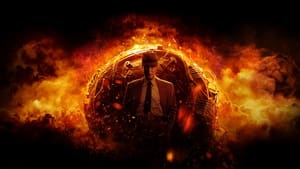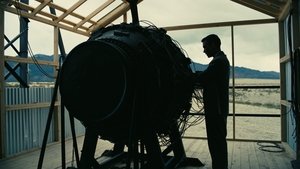
Video Sources 28 Views Report Error
Synopsis
The narrative follows J. Robert Oppenheimer, a brilliant physicist, as he becomes a pivotal figure in the creation of the atomic bomb amid the tumult of World War II. Faced with the urgency of the war and the threat posed by Nazi Germany, the United States government initiates the Manhattan Project, a secretive and ambitious undertaking aimed at developing nuclear weapons.
Oppenheimer, who possesses both exceptional intellect and a deep understanding of theoretical physics, is appointed as the scientific director of the project. As he assembles a diverse team of the world’s leading scientists at Los Alamos, New Mexico, the story delves into the intense atmosphere of collaboration and competition. The scientists grapple with groundbreaking theories, complex equations, and moral dilemmas, all while racing against time to create a weapon of unprecedented power.
Throughout the project, Oppenheimer emerges as a complex leader, balancing the pressures of military oversight with the ethical implications of their work. The narrative explores his internal conflicts as he grapples with the potential consequences of their creation, especially as the war escalates and the need for a decisive weapon becomes ever more pressing.
As the team makes significant breakthroughs, the tension builds towards the moment of the bomb’s first successful test, known as Trinity. Oppenheimer’s reflections on the event, where he famously recalls lines from the Bhagavad Gita, underscore the profound impact this moment has on him and the world. The successful detonation signifies not only a technical achievement but also the dawn of a new era defined by nuclear power and the looming threat of annihilation.
In the aftermath, the bomb is dropped on Hiroshima and Nagasaki, leading to the swift conclusion of the war. Oppenheimer’s initial triumph soon turns to deep regret as he confronts the catastrophic human cost of their work. The story captures the transformation of Oppenheimer from a celebrated scientist to a figure burdened by the moral weight of his contributions.
As the Cold War begins, Oppenheimer becomes a prominent advocate for nuclear arms control, seeking to mitigate the dangers of the very invention he helped bring into existence. His journey is marked by public scrutiny, political challenges, and his eventual loss of security clearance during a contentious hearing, reflecting the complex legacy of the atomic bomb and its creator.
Ultimately, the story of J. Robert Oppenheimer is one of intellect, ambition, and profound ethical questions, as it examines the intersection of science and humanity during one of history’s most pivotal moments. It invites audiences to reflect on the responsibilities of scientific discovery and the enduring consequences of wielding such power.
Original title Oppenheimer
IMDb Rating 8.3 802,447 votes
TMDb Rating 8.087 9,059 votes
Director
Director
Cast
J. Robert Oppenheimer
Kitty Oppenheimer
Leslie Groves
Lewis Strauss
Jean Tatlock
Ernest Lawrence
Boris Pash
David Hill
Niels Bohr
Edward Teller


































